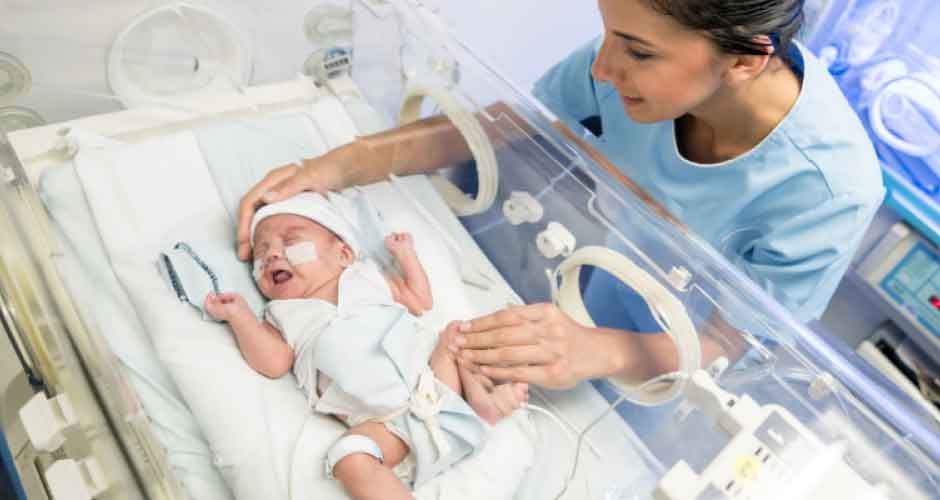In recent years, neonatal care has witnessed remarkable advancements, significantly enhancing the health outcomes of infants. These innovations range from sophisticated technologies to improved care protocols, each vital in nurturing the earliest stages of life.
Read on as this article delves into these groundbreaking developments, offering insights into how they reshape neonatal care.
Understanding The Basics Of Neonatal Care
Neonatal care, a vital branch of pediatric medicine, focuses on caring for newborns during their first 28 days, the neonatal period. This phase is crucial for a child’s survival and long-term health.
Neonatal care encompasses a range of practices and interventions, from basic warmth and feeding to highly specialized medical care for premature and critically ill newborns. Significant physiological changes mark the neonatal period as infants adjust from a fetal to a neonatal environment, requiring careful monitoring and adjustment of care.
Advancements In Neonatal Monitoring Techniques
Recent advancements in neonatal monitoring have revolutionized the ability to assess and respond to the health needs of newborns. Key to these advancements are innovations in sensor technology, wireless monitoring, and data analytics, which have improved the ability of medical professionals to monitor and care for newborns.
Modern monitoring technologies now enable continuous tracking of vital parameters like heart rate, respiratory rate, oxygen saturation, and blood pressure with minimal discomfort to the infant. These technological improvements have enhanced the capability to detect and respond to early signs of distress or illness, reducing the risk of complications and improving the overall outcomes for newborns.
Neonatal Resuscitation Program
Let’s learn more about Neonatal Resuscitation Program (NRP). NRP is a global initiative that provides guidelines and training for the resuscitation of newborns who experience difficulty breathing after birth. It includes a sequence of interventions to establish effective breathing and circulation.
The NRP covers various aspects, including basic life support, advanced resuscitation, medication administration, and post-resuscitation care. The program’s effectiveness lies in its structured approach, combining simulation-based education, regular updates based on the latest research, and emphasizing teamwork and communication among healthcare providers.
Innovative Treatment Methods For Premature Babies
Innovative treatments for premature infants, or preemies, have significantly improved their survival rates and long-term outcomes. These innovations include advanced respiratory support like high-frequency ventilation and less invasive surfactant administration, targeted nutritional strategies to promote growth and development, and kangaroo mother care (KMC), which involves skin-to-skin contact to enhance bonding and stabilize the infant’s physiological parameters. Research into the unique needs of preemies continues to drive the development of new treatments and care practices.
Enhancements In Neonatal Nutrition And Feeding Practices
Nutritional care in neonatology has also seen remarkable advancements, recognizing the critical role of nutrition in the early development of newborns. This progress includes a better understanding of the specific nutritional requirements of certain groups, such as very low birth weight (VLBW) infants. Consequently, specialized formulas and fortifiers have been formulated to meet these unique needs.
Moreover, the benefits of breast milk, with its comprehensive nutritional profile and immune-boosting properties, have been strongly advocated, leading to the rise of donor milk banks. Enteral and parenteral nutrition techniques have also been refined to cater to infants who cannot feed orally.
Integrating Family In Neonatal Care
Family-centered neonatal care has gained prominence, acknowledging the role families play in the health and development of newborns. This approach encourages active family involvement in care decisions and daily care practices. This extends to creating a supportive environment in neonatal units, facilitating parent-infant bonding, and providing emotional and educational support to families. This inclusive approach has been associated with positive outcomes, including shorter hospital stays, improved infant health, and enhanced parental satisfaction and confidence.
The Role Of Technology In Neonatal Care
Technological advancements in neonatal care encompass a wide range of innovations, including state-of-the-art incubators that meticulously regulate the environment for premature infants, advanced diagnostic and therapeutic equipment, and digital health solutions like telemedicine, extending neonatal specialists’ reach. These technologies help improve the quality and efficacy of neonatal care and offer new possibilities for training healthcare professionals and conducting research.
Challenges And Future Directions In Neonatal Care
Despite significant advancements, neonatal care faces ongoing and emerging challenges. These include addressing global disparities in neonatal care, managing the rising rates of premature births, and integrating rapidly evolving technologies into clinical practice. Future directions focus on personalized medicine, leveraging big data and machine learning to tailor care to individual needs and further improving survival and long-term outcomes for newborns, especially in resource-limited settings. The field continues to evolve, driven by research, innovation, and a commitment to ensuring all infants’ best start in life.
Final Thoughts
The landscape of neonatal care is continuously evolving, marked by significant innovations that have dramatically improved infant health outcomes. From advanced monitoring techniques to family-centered care approaches, these developments have reshaped how newborns receive care.
Indeed, the future holds promise for further advancements, ensuring neonatal care remains at the forefront of medical science, dedicated to safeguarding the health and well-being of the most vulnerable patients.






